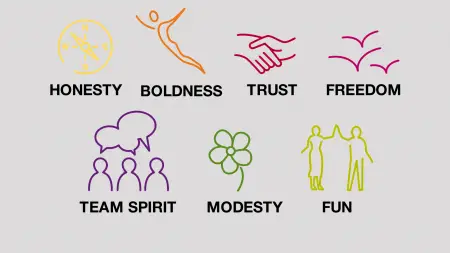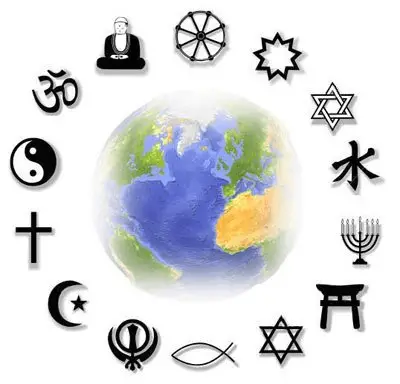Values and beliefs are important concepts that make you who you are. Although similar in some ways, these are two different things that dictate one’s behavior and feelings towards others. This article aims to show the difference between them.
Summary Table
| Values | Beliefs |
| Abstract rules about people’s standards or principles | Acceptance of something as truth without proof |
| Influence behavior and character | Influence one’s values and morals |
| Examples: equality, fairness, courage, compassion | Examples: God is all-knowing and creator of heaven and earth, lying is bad |
Definitions

Values usually refer to an abstract rule that can be applied to many experiences. It can also be applied as per personal choice in numerous situations. Values can also be defined as a moral choice an individual uses consistently in many situations. Thus, it can be used to know a person’s sense of right or wrong, or what should be done in certain situations. Values can influence one’s behavior and attitudes. “Peace, justice, and equality for all,” or “Time is gold,” are examples of values people may follow.
Values can differ from person to person, or, taking a wider perspective, they can differ for people across all cultures. They are a basic foundation of one’s humanity, attitudes, and how one views everything that surrounds him/her. Decisions are often made based on values.
It’s no surprise that each person may have different values. They can be an amalgam of one’s background, experiences, and finally evolving into a sense of self. It can also be influenced by many factors such a religion or society. However, a person may change values over time as a result of the same. A person who has moral values is usually kind, god-loving, honest, courageous, loyal, respectful, fair, compassionate, and a whole lot more. There are several types of values, and these include ethical or moral values, religious and political values, social and aesthetic values.

Beliefs are ideas a person holds true regardless if they are supported by hard, factual, and empirical evidence. It is a state of mind, a mental representation of an attitude of being positively inclined to believe in an idea as true. Psychologists define belief as one of the building blocks of conscious thought.
Beliefs are usually rooted in religion, but not always. People hold the belief of a God that created the heavens and the earth, or that Jesus Christ was resurrected from the dead. Muslims believe in Allah, and the Chinese revere Confucius. These are all religious beliefs built upon religious ideals and concepts and are not necessarily based on scientifically proven data.
Can a Person’s Values Change?
It’s not uncommon for a person’s values to change as they age. Studies have shown that values can change for the following reasons:
Life experiences & milestones: significant experiences and milestones can change our values. For instance, as a person matures and develops a deeper understanding of themselves and the world, they may reevaluate their values. For instance, when they were younger, they may have gone after material success. However, as they age, the person may place more value on relationships with their spouse and families.
External influences: can also change a person’s core values. For instance, societal shifts, advances in technology, and cultural changes can affect a person’s values in dramatic ways.
Personal reflection & self-discovery: personal growth usually involves self-discovery and introspection. For instance, life experiences can help an individual gain deeper wisdom and self-awareness. The same can be said of life crises and challenges.
Can an Individual’s Beliefs Change?
Yes, a person’s beliefs can change for the same reasons their values may change. Again, time is the key. As they go through life experiences, a person’s beliefs may change by intensifying or falling away. This is often the case with religion, for example. When an individual is young, they may not share the same religious beliefs as their parents. But through life, their religious beliefs may intensify as they mature and age.
Personal reflection, self-discovery, cultural changes, societal shifts, milestones, and more can have a dramatic impact on a person’s beliefs.
On the other hand, some people’s beliefs never change in spite of their life experiences and maturity. It all depends on their psychological makeup.
Values vs Beliefs
So what’s the difference between values and beliefs? While people use both as their guiding principles in life, these terms are essentially different.
Values are abstract rules people apply to many life experiences. These are personal ideas people hold on to as truth and are not related to past experiences. Beliefs are assumptions people hold as true and that are related to past learned experiences. Values can affect behavior and character, whereas beliefs can influence one’s morals and values.
Values apply and are directly related to everyday life, while beliefs are often rooted in faith and religion. Some examples of values are the concepts of loyalty, courage, compassion, fairness, and respect. Beliefs would include the concepts of good and evil, astrology, and the like.





